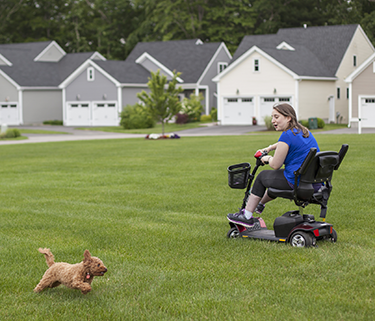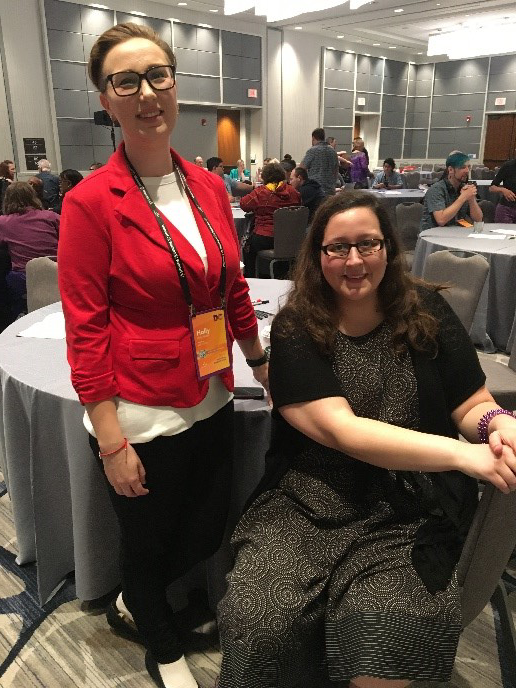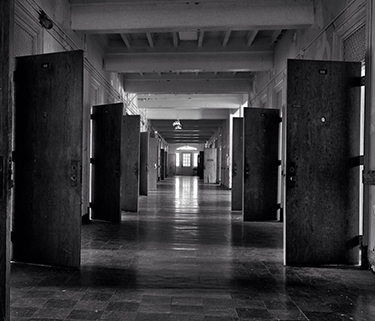Class Action Complaint Filed in West Virginia Alleging Systemic Disability Discrimination in Kanawha County Schools
Charleston, WV – The Arc of West Virginia is joining parents of a child with autism in filing a class action complaint in federal court in Charleston alleging widespread failures by Kanawha County Schools (KCS) to educate children with disabilities, including autism, intellectual and developmental disabilities, mental health issues, and Attention Deficit Hyperactivity Disorder (ADHD). Specifically, the complaint, filed Friday, asserts that KCS—the public school district serving the Charleston metro area—has failed to provide behavioral supports to students with disabilities and is instead punishing them by sending them home instead of educating them. Attorneys for The Arc of West Virginia and the parents—Disability Rights of West Virginia, Mountain State Justice, The Arc, the Bazelon Center for Mental Health Law, and the global law firm Latham & Watkins LLP—allege that KCS has violated federal laws protecting students with disabilities.
“The Arc has long fought for students with intellectual and developmental disabilities to be educated in their neighborhood schools, with appropriate supports,” said Liz Ford, Executive Director of The Arc of West Virginia. “KCS’ systemic failure to provide such supports to students with disability-related behaviors has led to punishment, segregation from classmates without disabilities, and loss of valuable instruction time. This is unacceptable to The Arc and our constituents in West Virginia.”
“Students with disabilities and behavioral support needs can thrive in school, graduate with diplomas, and transition to successful adulthood provided they receive the appropriate supports to which they are entitled under federal law. It is critical that KCS take responsibility for teaching all of its students, not just some,” said Jeremiah Underhill, Legal Director of Disability Rights of West Virginia.
Data from the West Virginia Department of Education shows that over 1,000 children with disabilities enrolled in KCS were removed from their classrooms during the 2018-2019 school year after their schools suspended them. This number does not include all of the additional students with disability-related behaviors whose schools asked their parents to take children out of the school before the end of the school day, or to keep them at home, without formally suspending them. It also does not include students with disabilities who were expelled from school for their behavior; those who were separated unnecessarily from mainstream classrooms and moved to segregated classrooms where they interact only with other students with disabilities and receive an inferior education; or those who were placed on “homebound” status where they may receive only a few hours of tutoring each week. These students are not receiving critical behavioral supports that can help them be successful in the general education classroom with their classmates without disabilities.
“It is heartbreaking to see KCS undermine the great potential of students with disabilities by failing to provide necessary supports and, ultimately, removing them from the classroom, causing them to fall farther and farther behind academically and socially,” said Lewis Bossing, Senior Staff Attorney with the Bazelon Center. “And the problem is only getting worse: in the 2018-2019 school year, KCS removed nearly 250 more students with disabilities from the classroom than in the prior academic year, despite overall KCS enrollment decreasing during that same period.”
Specifically, the complaint alleges that KCS is: 1) violating the Individuals with Disabilities Education Act (IDEA) by failing to provide children with disabilities with the special education they need to receive a “free appropriate public education” in the least restrictive environment; and 2) violating the Americans with Disabilities Act (ADA), Section 504 of the Rehabilitation Act (Section 504), and the West Virginia Human Rights Act by failing to educate children with disabilities in the most integrated setting appropriate to their needs, and denying them equal educational opportunity.
“We are seeing KCS discipline students with disabilities for ‘infractions’ as minor as touching another student with a plastic fork or refusing to get off the playground slide at the end of recess. Students are receiving behavior supports that take the form of rote “code of conduct” checklists rather than the individualized supports that the IDEA requires to adequately support children to succeed in school,” said Lydia Milnes, an attorney with Mountain State Justice.
In 2017, the U.S. Supreme Court held unanimously in Endrew F. v. Douglas County School District RE-1 that the “IDEA demands more.” Specifically, the Court provided a new and more demanding standard for what schools must do to adequately educate students with disabilities, requiring that school districts provide “an educational program reasonably calculated to enable a child to make progress appropriate in light of the child’s circumstances” and provide students with disabilities the opportunity to meet “challenging objectives” with “appropriately ambitious” special education. For virtually all children, this means receiving instruction and services in the general education classroom, with appropriate supports, alongside students without disabilities. In addition, in 1999, in Olmstead v. L.C., the Court held that the ADA prohibits the needless isolation or segregation of people with disabilities. The ADA applies to public schools, which cannot unnecessarily segregate students with disabilities, nor deny them equal opportunities.
“KCS’ systemic failures to support students with disabilities in the least restrictive, most integrated setting, and overuse of punitive disciplinary measures for behavior that is disability-related, cannot be justified in light of recent and longstanding Supreme Court precedent,” said Michael Faris, Latham & Watkins partner. “By failing to adhere to the IDEA and ADA, KCS is diminishing our clients’ ability to secure the education to which they are entitled by law. We look forward to ensuring that the law is upheld.”
About The Arc
The Arc is the largest national community-based organization advocating for and serving people with intellectual and developmental disabilities (I/DD) and their families. In partnership with its network of 650 chapters across the country, including The Arc of West Virginia, The Arc works to promote and protect the rights of people with I/DD to live, work, and learn in the community free from discrimination. To learn more, visit www.thearc.org and www.thearcofwv.org
About Disability Rights of West Virginia
Disability Rights of West Virginia (DRWV) is the federally mandated protection and advocacy system for people with disabilities in West Virginia. DRWV protects and advocates for the human and legal rights of persons with disabilities. To learn more, visit https://www.drofwv.org/.
About Mountain State Justice
Mountain State Justice is a non-profit legal services firm dedicated to redressing entrenched and emerging systemic social, political, and economic imbalances of power for underserved West Virginians, through legal advocacy and community empowerment offered regardless of ability to pay. To learn more, visit https://mountainstatejustice.org/.
About The Judge David L. Bazelon Center for Mental Health Law
The Judge David L. Bazelon Center for Mental Health Law is a national legal advocacy organization protecting and advancing the rights of people with mental disabilities. The Center promotes laws and policies that enable adults and children with mental disabilities to live independently in their own homes, schools, and communities, and to enjoy the same opportunities that everyone else does. To learn more, visit www.bazelon.org.
About Latham & Watkins LLP
Latham & Watkins LLP is global law firm with more than 2,700 lawyers located in Asia, Europe, the Middle East, and the United States. For more information, please visit its website at www.lw.com.


















